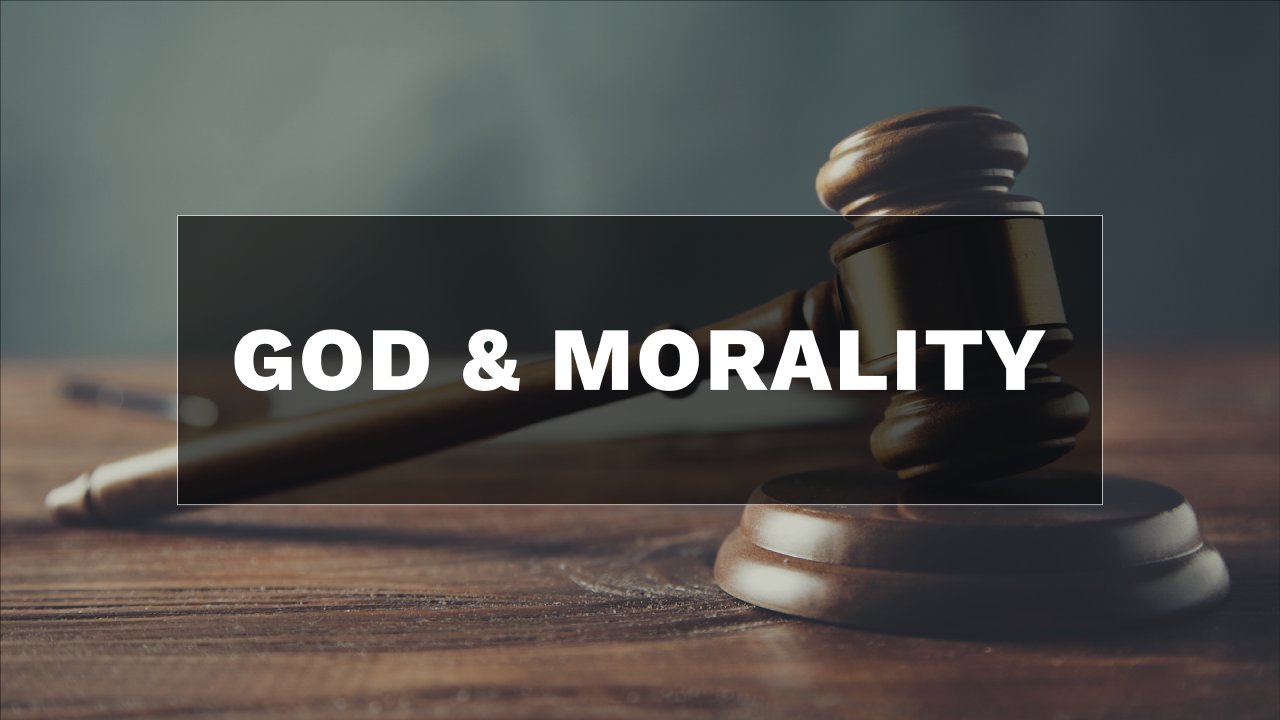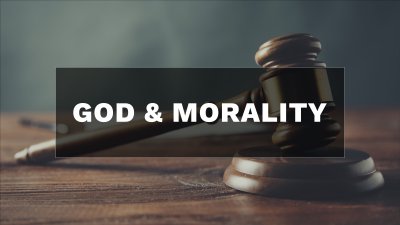Point 2: If God does not exist, then we do not have a sound foundation for objective moral values and duties.
When we look at the features of morality, this time on an atheistic worldview, we discover the inadequacy of naturalism to provide an adequate ground for morality. Let’s look at the five features again.
Atheism cannot adequately explain moral values.
If God does not exist, it is difficult to see what basis there is for the existence of objective moral values. Moral values do not fit in a world of only natural, physical things. On a naturalistic view, moral values could only be the result of biological evolution, purely for the purpose of survival. But that wouldn’t make them good or moral. They’d simply be accidents of evolution that could have turned out some other way if chance had sent it that direction.
Atheists recognize the unnatural fit. J.L. Mackie, one of the most prominent atheist philosophers of the 20th century, said this: “Moral properties constitute so odd a cluster of qualities and relations that they are most unlikely to have arisen in the ordinary course of events, without an all-powerful god to create them.”
Atheism cannot adequately explain moral obligations.
If humans are simply more developed animals, there couldn’t be moral duties we’re obligated to obey. Male great white sharks are under no obligation to refrain from forcibly mating with female great whites. Male lions are under no obligation to refrain from killing all the young lion cubs in a pride they have just taken over. Notice, we do not use moral terms to describe such behavior. We do not call the shark’s behavior “rape” and we do not call the lion’s behavior “infanticide.” It’s just what animals do because they have no moral obligations.
Natural science is a descriptive enterprise, only telling us what is the case in nature, not what ought to be. It only tells us what is the case without saying if it’s good or evil.
On a naturalistic view, there is nothing to issue moral commands and there is no one to serve as the appropriate authority standing behind our moral obligations. In the absence of God, the concept of moral obligations is incoherent.
Atheism cannot adequately explain moral accountability.
If God does not exist, there is no basis for moral accountability. On naturalism, who or what imposes moral obligations on us? And who or what would hold us to those obligations? In a purely material universe, there is no moral accountability. In an atheistic universe, there no reason no to disregard your moral obligations because no one is holding you accountable. If something promotes survival and you can get away with it, there’s no reason not to do it because you have no moral obligations. Only the obligation of survival.
Atheism cannot adequately explain human value.
On a naturalistic evolutionary scenario, human beings are nothing special. Evolution is a blind process of chance, and that includes us. The same process that coughed up bacteria, also coughed up humans. There is nothing intrinsically valuable about being human. Indeed, on this view, to think human beings are special is to be guilty of “speciesism,” the view that one’s own species is somehow superior to other species. Humans are no more valuable than bacteria.
There is no reason to think that an impersonal, valueless process could produce valuable persons with rights that should be protected.
Atheism cannot adequately explain human freedom.
If we are the products of evolutionary forces, we have no moral freedom or responsibility. If we’re products of evolutionary chance, then we have no free will. We’re just c-fibers firing in our brains giving us the illusion of freedom, but strictly determining everything we think and do. Atheist philosopher Thomas Nagel states that there is “no room for agency in a world of neural impulses, chemical reactions, and bone and muscle movements”; naturalism strongly suggests that we are “helpless” and “not responsible” for our actions.
If there is no free will, then no one is morally responsible for anything. Determinism puts an end to objective moral duties because, we have no control over what we do. We are nothing more than puppets in a cause-and-effect universe.

What Atheism Can’t Explain
Brett Kunkle
More from
God and Morality



